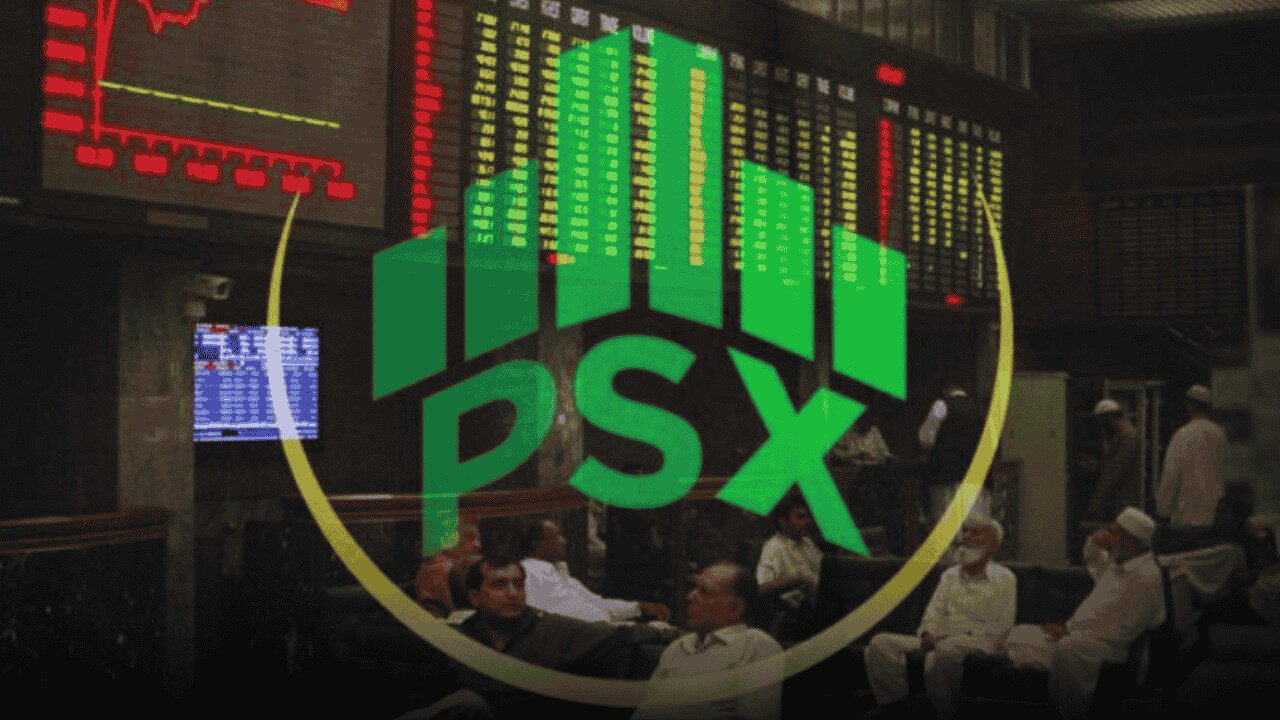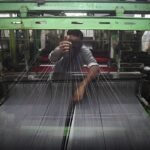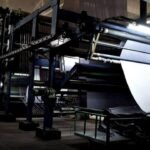By Moaaz Manzoor
The Pakistan Stock Exchange (PSX) took a small step back last week as investors locked in profits and waited for key economic decisions.
In this Pakistan Stock Exchange weekly report, the KSE-100 Index dropped by 502 points, or 0.31 percent, closing at 163,304.13 — showing that traders were playing it safe before the next monetary policy and IMF Board review.
KSE-100 Index Movement Shows Cautious Trading
After several weeks of strong gains, the market appeared to pause for breath. The index opened at 164,912, climbed to a high of 168,414, then slid to 163,042 before settling near 163,000 points. Analysts described this as a normal cooldown after a steady climb.
Trading Volumes Decline as Investors Take a Step Back
Trading also slowed down. The average daily volume fell by nearly 19 percent to 1.48 billion shares, while the total traded value dipped 10.6 percent to around USD 177 million. K-Electric (KEL) led the way with 194.8 million shares traded, making it the most active stock of the week.
Sector Performance: Banks Weigh Down the Market
The market’s ups and downs came from different sectors pulling in opposite directions.
Exploration and Production companies gave the index a 404-point lift, while Investment Banks, Miscellaneous, Leather & Tanneries, and Fast-Moving Consumer Goods added smaller boosts. On the flip side, Banks dragged the index down by 502 points, followed by Power, Cement, Refinery, and Automobile Assemblers.
Economic Indicators Remain Broadly Stable
The broader economy, meanwhile, remained steady. Pakistan’s current account showed a surplus of USD 110 million in September 2025 — a clear improvement from the USD 52 million deficit in the same month last year and the USD 325 million deficit in August.
However, the first quarter of fiscal year 2026 still posted a deficit of USD 594 million, slightly higher than last year’s USD 502 million.
There were small changes in currency and investment trends too. The Real Effective Exchange Rate (REER) moved up to 101.73 in September from 100.09 in August.
Foreign Direct Investment (FDI) rose modestly to USD 186 million in September, compared to USD 175 million in August. But when looking at the bigger picture, total FDI for the first quarter dropped 34 percent year-on-year to USD 569 million.
Companies also sent more profits back overseas. Repatriation of profits and dividends jumped 85.8 percent from last year to USD 751.7 million in the first quarter, even though it fell sharply to USD 159 million in September alone.
Energy and Currency Trends Show Mixed Results
Energy numbers told a mixed story. Oil production dropped 6.9 percent and gas output slipped 3.1 percent week-on-week. But power generation in September increased 0.8 percent compared to last year, reaching 12,592 gigawatt hours (GWh).
The cost of power generation also dropped 15 percent year-on-year to PKR 7.09 per kilowatt hour, helped by a 7.1 percent decline in Brent crude prices.
Pakistan’s foreign exchange reserves inched up to USD 14.45 billion, while the rupee stayed firm at 281.02 per US dollar, reflecting some currency stability in recent weeks.
Analysts Expect Stability Ahead of Monetary Policy Decision
Arif Habib Limited (AHL) noted that the KSE-100 Index is now trading at a price-to-earnings ratio of 8.58x — nearly the same as its 15-year average of 8.59x. The dividend yield stands at 5.5 percent, just below the historical average of 6.1 percent.
AHL expects the Monetary Policy Committee (MPC) to keep the policy rate unchanged in its October 27 meeting.
Ali Najib, Deputy Head of Trading at AHL, said the market’s decline was mostly a “correction phase” as investors adjusted their portfolios before the policy meeting and rollover week.
“The index remained under pressure despite active participation, with traded value reaching Rs 34.9 billion,” he told this reporter.
Looking ahead, AKD Securities predicted a mildly positive outlook. They believe stronger credit ratings, ongoing talks with the IMF, and improving relations with the United States and Saudi Arabia could support the market.
The brokerage expects the KSE-100 to stay between 160,000 and 165,000 points — calling 160,000 a solid support level where investors may start buying again.
Author Profile
-
Moaaz Manzoor is a business correspondent who meticulously tracks Pakistan’s crucial but neglected natural resource industries.
He specializes in exposing inefficiencies and charting the course of modernization, highlighting how efforts to mechanize mining have dramatically cut marble and granite wastage, driving a recovery and attracting vital investment.





